|
Where Does Your Money Go?
By Jennifer Haselberger
Canonical Consultation
December 13, 2014
http://canonicalconsultation.com/blog.html
This week, the Archdiocese of Saint Paul and Minneapolis continued its efforts to get itself out of financial hot water by sending a message to all pastors with a suggested text for parish bulletins which offers the Archdiocese's explanation of how contributions made to parishes are spent. The recommended text (for parishes without schools) is this:
| When you give to our parish, where does your money go? When you put your offering in the collection basket, make an electronic gift or give a special donation to the parish, 91 cents of every dollar you give stays right here in our parish or supports initiatives as determined by our parish. Your gift keeps the lights and heat on, maintains our church and campus buildings, provides fair wages and benefits for our dedicated staff, helps provide for parish faith formation programming, supports our uplifting music ministry, feeds families through the food shelf and provides outreach ministry in our community. (INSERT/CHANGE MINISTRIES AS APPLICABLE AT YOUR PARISH). Your support allows all of these wonderful ministries to bring the Gospel message and joy of knowing Jesus Christ to others. For this budget year, of every dollar you give to the parish, 9 cents go to the archdiocese. Of that 9 cents, over 8 and a half cents support archdiocesan operations and ministries throughout our 12-county local Church. This budget year, less than half a cent of every dollar you give to the parish goes to the archdiocese to pay expenses related to clergy sexual abuse and other clergy misconduct. Historically, archdiocesan reserves and insurance paid for legal settlements and special issues expenses that are not anticipated to be ongoing in the long-term and are arising primarily from the lifting of the civil statute of limitations on sexual abuse. |
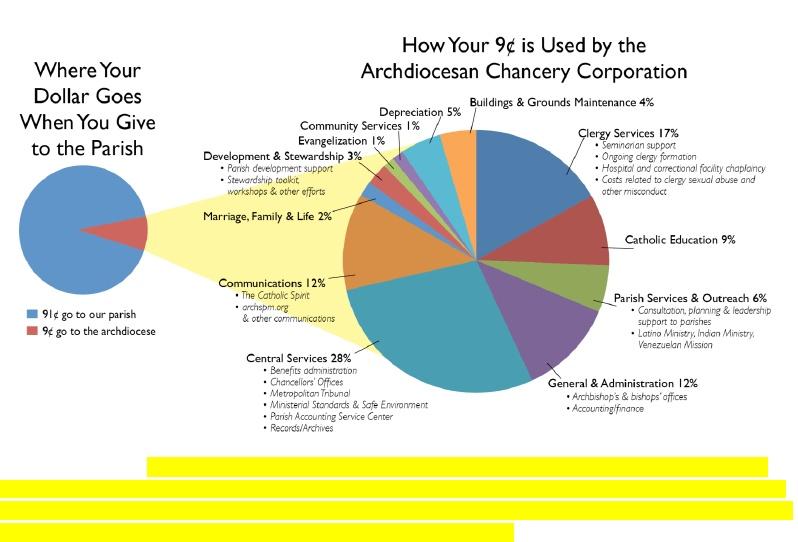 |
As I explained in a previous post, I disagree with the Archdiocese's claim that 'less than half a cent of every dollar you give...goes to the Archdiocese to pay expenses related to clergy sexual abuse and other clergy misconduct'. I think that the costs of misconduct are spread fairly broadly throughout the various categories of the pie chart (General & Administrative, you will note, includes the Archbishop's Office...).
But, I am also concerned about the ways in which the Archdiocese's legal troubles (and history of bad decision making) are beginning to impact the 91% of contributions that remain with the parishes. I noticed that the description of 'parish initiatives' in the suggested bulletin text does not include paying the 'initial retainer' or subsequent (and as yet undetermined) legal fees that were discussed at this week's meeting with Mary Jo Jensen-Carter, the attorney who would like to represent all the parishes in the 'Archdiocese's process of obtaining a global settlement of the clergy abuse claims'.
While I was initially hopeful that this would be a positive step forward for parishes, my opinion has since changed. Rather than an initiative of the parishes, it is becoming more and more clear that this effort is really coming from the Chancery. Like the appointment of Tim Healy as President of the Catholic Services Appeal Foundation, the choice of Jensen-Carter, a former paralegal for the law firm of the current Chancellor for Civil Affairs (Joe Kueppers), removes any plausible claim that this is an independent initiative.
More importantly, however, I question the liability of parishes for abuse claims arising from the assignment of clergy by the Archdiocese. While the Archdiocese has always attempted to argue that its parishes have no legal relationship with the Central Corporation and are not subject to the direction or control of the Archdiocese, during my years at the Chancery I became convinced that this was untrue. It is the Archbishop, and only the Archbishop, who is responsible for assigning clergy to parishes under direct Archdiocesan control, and he (and his predecessors) confirm the appointments of religious priests for those parishes that have been entrusted to religious institutions. Why then should the parishes have to pay legal fees for costs relating to the negligent assignment of clergy by the Archbishop, especially given that the same parishes have already suffered from having abusive clergy sent to them and given access to their children and vulnerable adults?
If it were me, I would subtract the cost of the retainer and any additional legal fees from the amount the parish pays towards the annual assessment. I also would not be too quick to assume that participating in the negotiations is in the best interest of every parish. The situation of, say, Saint Ambrose of Woodbury is very different than the situation of Saint John the Baptist of New Brighton. Each parish should consider its position carefully when determining whether or not to join, and may want to consider joining with parishes in similar circumstances in a truly independent effort to secure a release or settlement (in other words, find your own attorney). In this way, those parishes may be able to offer a broader array of the types of non-monetary compensation that are often so important to the victims of clergy sexual abuse.
Just a thought.
If you are interested, here are the materials provided at this week's meeting with Jensen-Carter:
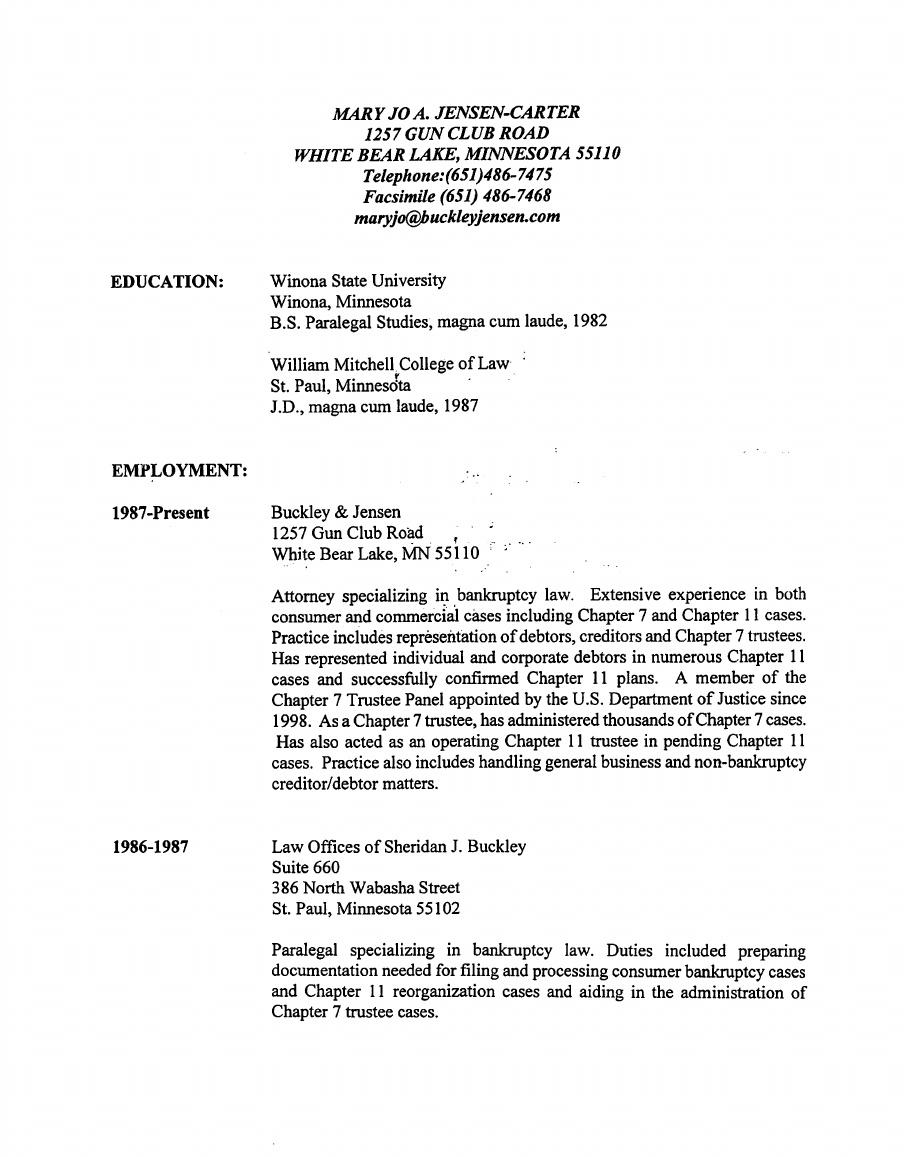 |
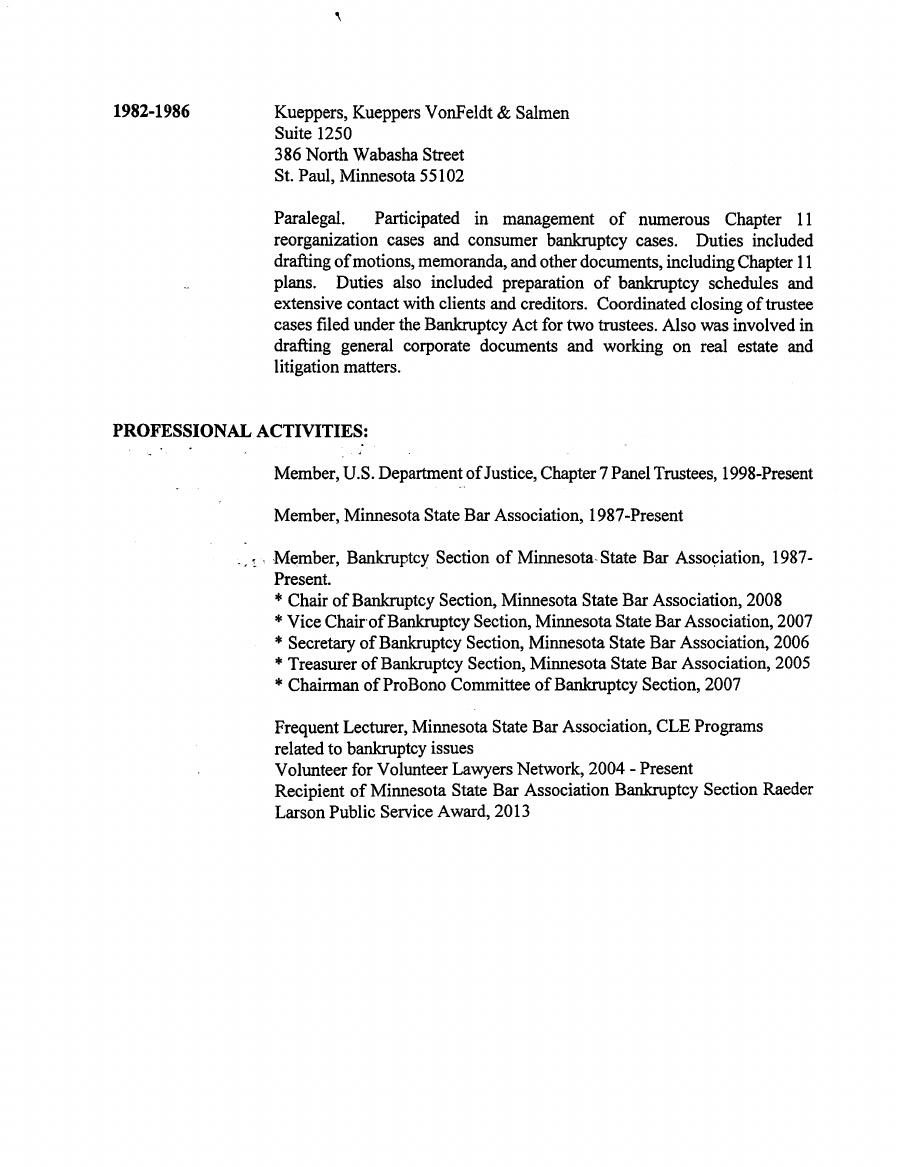 |
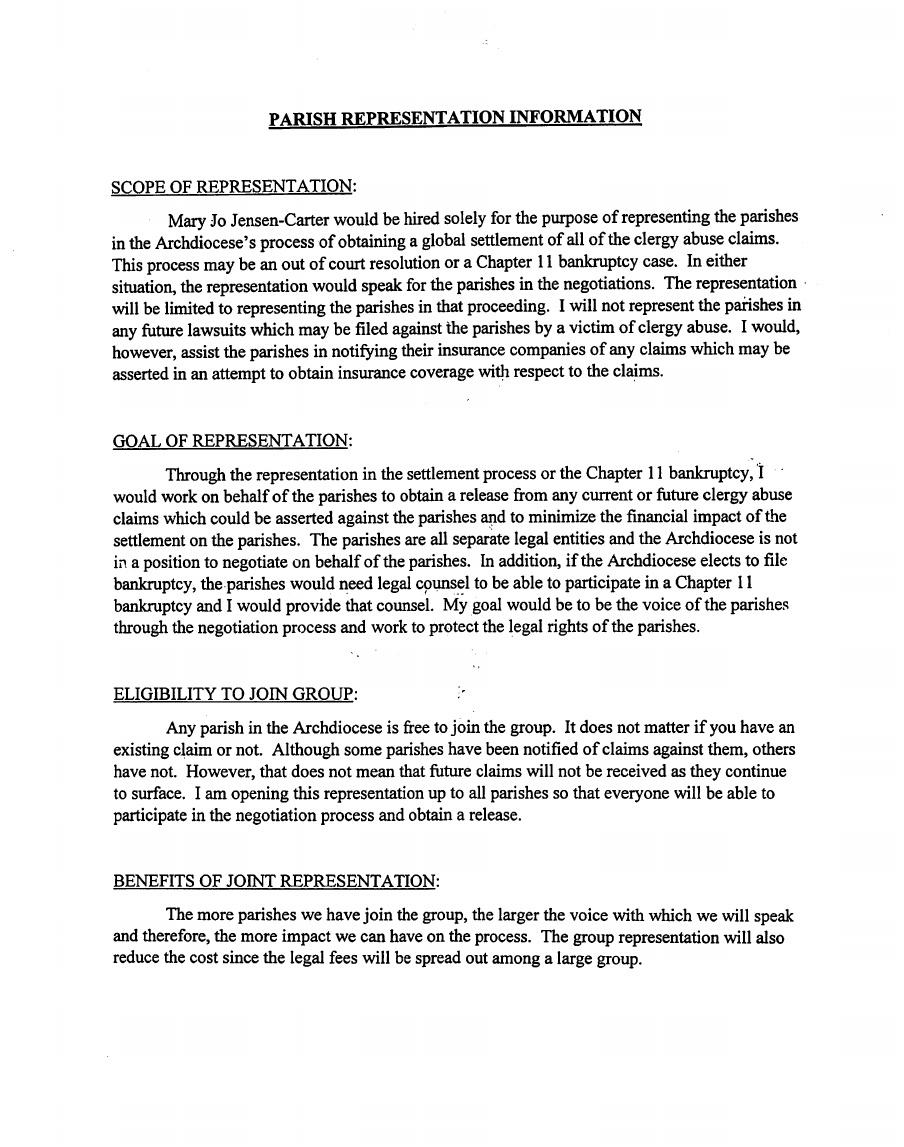 |
 |
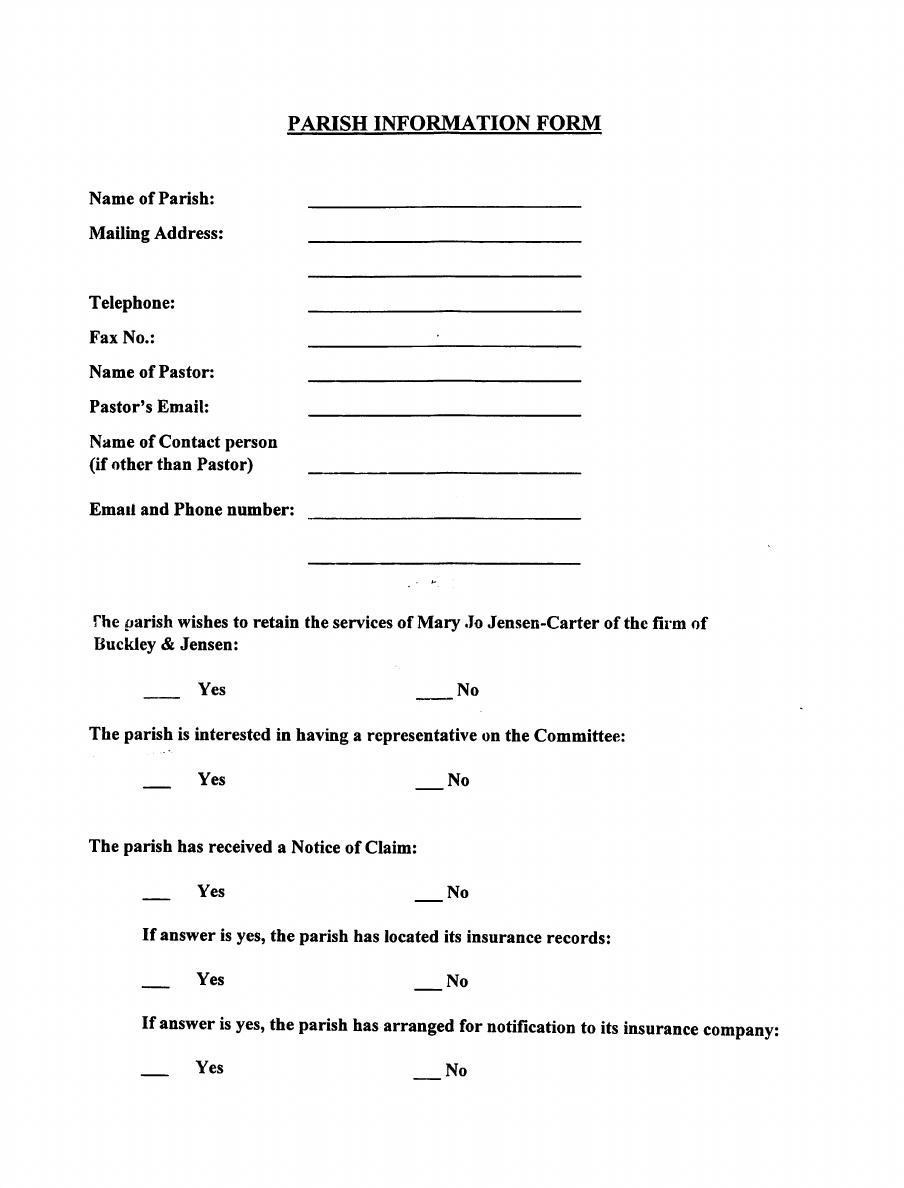 |
|





